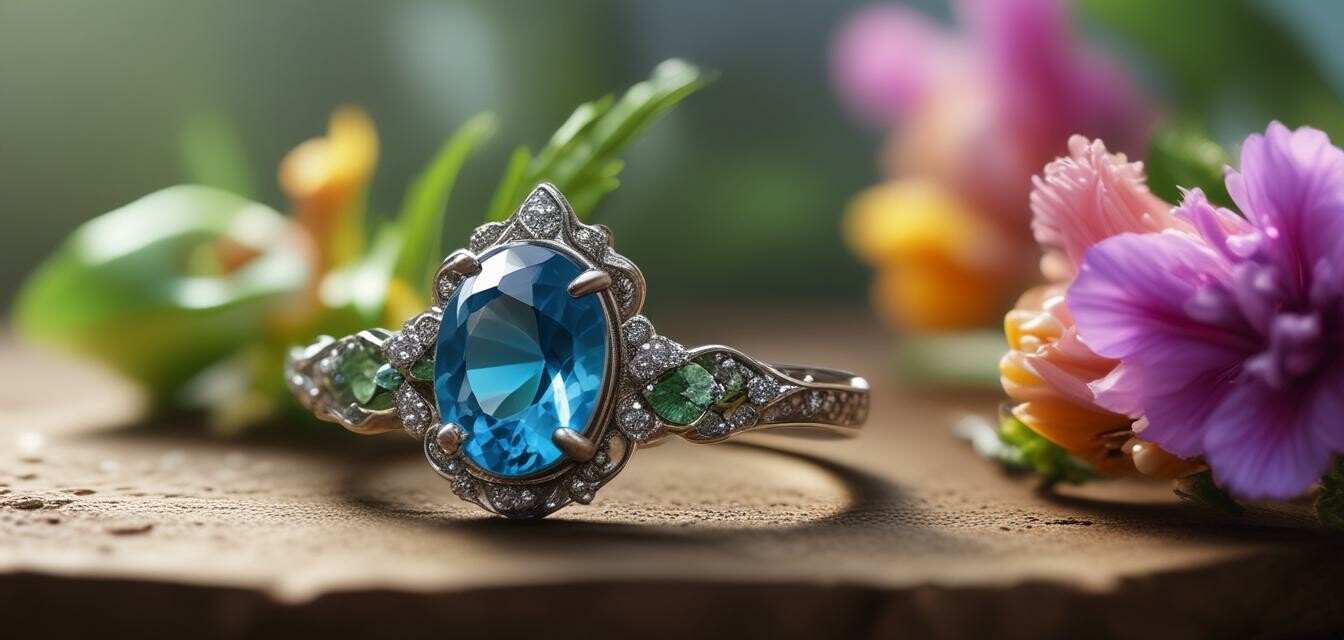
How jewelry can contribute to biodiversity
Key Takeaways
- Sustainable jewelry practices can enhance biodiversity.
- Ethical sourcing reduces negative environmental impacts.
- Artisans play a vital role in protecting ecosystems.
- Consumer choices can support eco-friendly practices.
- Understanding certifications helps identify sustainable products.
In today's world, the conversation around sustainability is more important than ever. With the growing concern over environmental degradation and the loss of biodiversity, wearing jewelry made from ethically sourced materials is not just a fashion statement; it's a step towards a more sustainable future. In this article, we’ll explore how sustainable jewelry practices can contribute to the preservation of biodiversity and what you can do as a conscious consumer.
The impact of jewelry on biodiversity
The jewelry industry can significantly affect biodiversity, particularly through its sourcing practices. Here’s a closer look at how these practices impact ecosystems and the importance of ethical sourcing.
| Impact of Traditional Sourcing | Benefits of Ethical Sourcing |
|---|---|
| Habitat destruction | Preservation of natural habitats |
| Pollution and toxic waste | Reduced environmental footprint |
| Unregulated mining practices | Responsible mining and land use |
| Exploitation of local communities | Support for fair trade and local artisans |
How sustainable jewelry practices enhance biodiversity
Jewelry that is created with sustainable practices not only minimizes environmental damage but also actively contributes to biodiversity. Here are some key practices:
- Ethical sourcing: Ensuring gemstones and materials are sourced from suppliers who adhere to sustainable practices.
- Recycled materials: Utilizing recycled metals and stones to reduce the demand for new mining operations.
- Artisan craftsmanship: Supporting local artisans who prioritize eco-friendly production methods.
- Sustainable certifications: Identifying brands that hold certifications for sustainable practices.
The role of artisans in protecting ecosystems
Artisan jewelers are often at the forefront of promoting sustainable practices. By supporting local artisans, consumers can contribute to preserving traditional crafting methods that respect both the environment and cultural heritage. Through their work, artisans can help maintain biodiversity in several ways, including:
- Using locally sourced materials to minimize resource depletion and ensure fair trade.
- Implementing traditional techniques that do not harm ecosystems.
- Promoting awareness of biodiversity among consumers through storytelling about their creations.
Understanding sustainable certifications
When purchasing jewelry, it’s important to look for certifications that indicate sustainable practices. Here are some of the most common certifications to watch for:
| Certification | Description |
|---|---|
| Fair Trade Certified | Ensures fair wages and safe working conditions while promoting environmentally friendly practices. |
| Responsible Jewellery Council | Promotes responsible ethical, social, and environmental practices throughout the supply chain. |
| OEKO-TEX | Guarantees safe and sustainable textiles and materials in jewelry where applicable. |
| Global Recycled Standard | A certification for recycled content and responsible social and environmental practices. |
Supporting sustainable jewelry brands
By choosing to support brands that prioritize sustainability, you help protect biodiversity while enjoying beautiful jewelry. Here are a few tips for finding sustainable jewelry brands:
Tips for finding sustainable jewelry brands
- Research brands online and read about their sourcing practices.
- Look for customer reviews focused on sustainability.
- Check the brand's website for transparency about their materials and processes.
- Support local artisans and markets that promote eco-friendly practices.
Conclusion
Jewelry can play a significant role in supporting biodiversity through ethical sourcing and sustainable practices. By making informed choices as consumers, we can help ensure that our adornments contribute positively to the planet. Whether it’s choosing eco-friendly styles or supporting artisans who prioritize sustainability, every purchase can influence the larger context of biodiversity preservation. Explore more about various sustainable **[practices here](/blog/sustainability-practices)**, and make a conscious effort to seek out ethical stone earrings and other jewelry that reflect these values.
Pros
- Supports ethical practices and local artisans.
- Reduces environmental degradation.
- Promotes the use of recycled materials.
- Encourages awareness of biodiversity and sustainability.
Cons
- Often higher prices compared to traditional jewelry.
- Limited availability in some areas.
- Difficulty in finding brands that meet all sustainability standards.